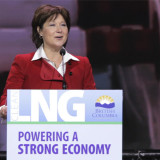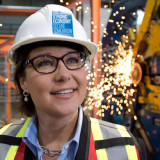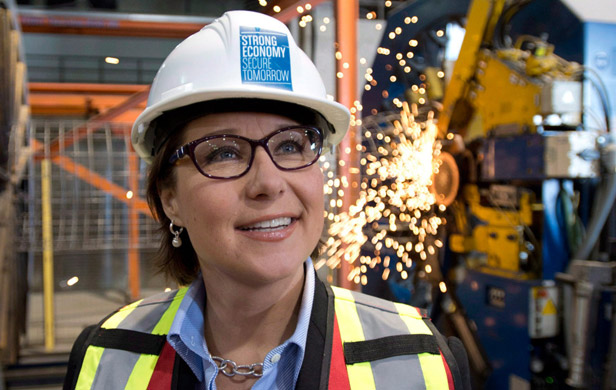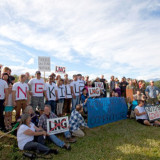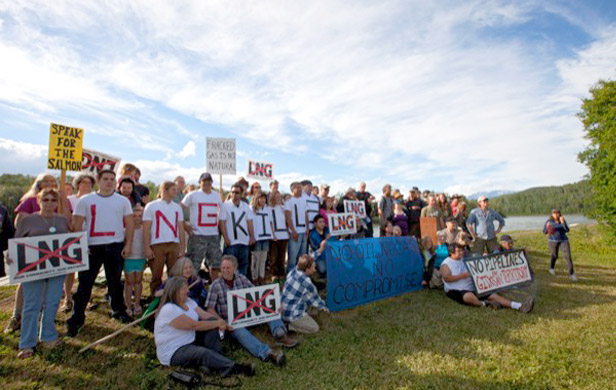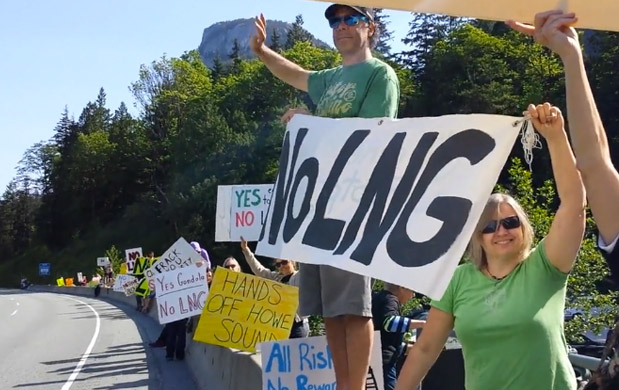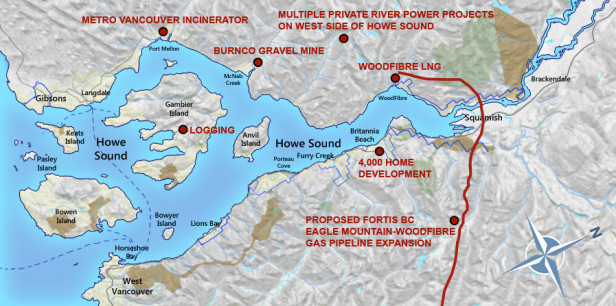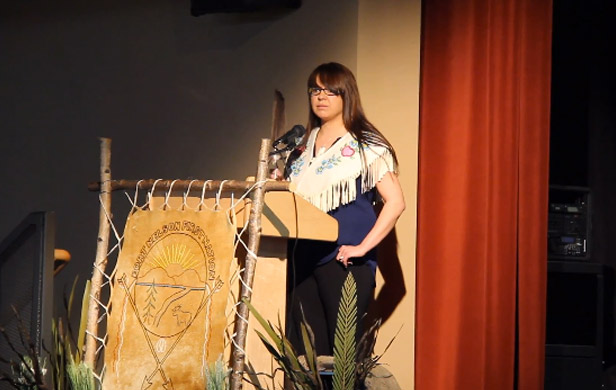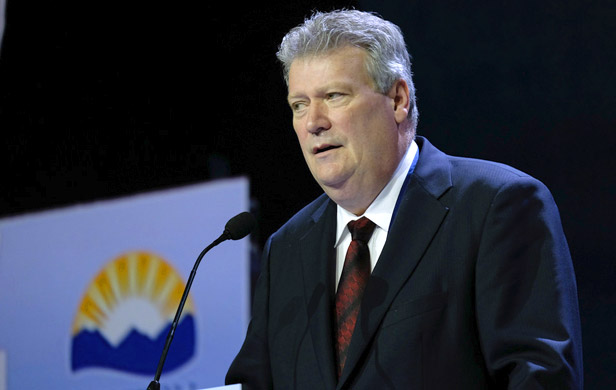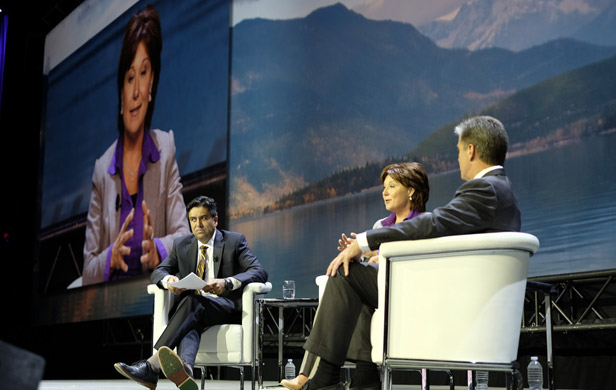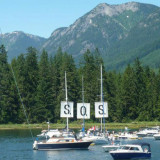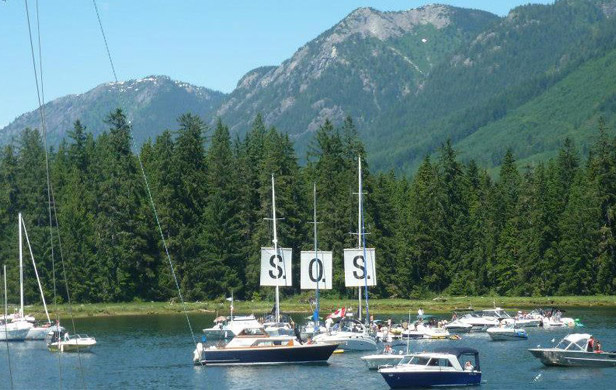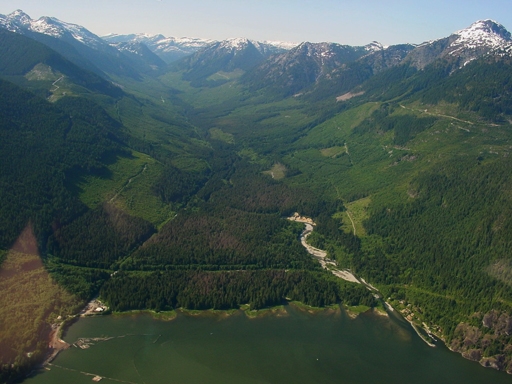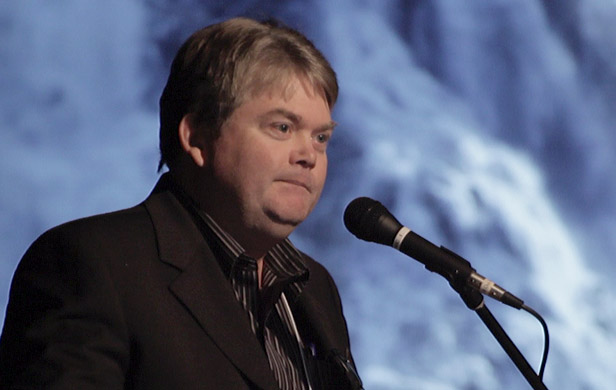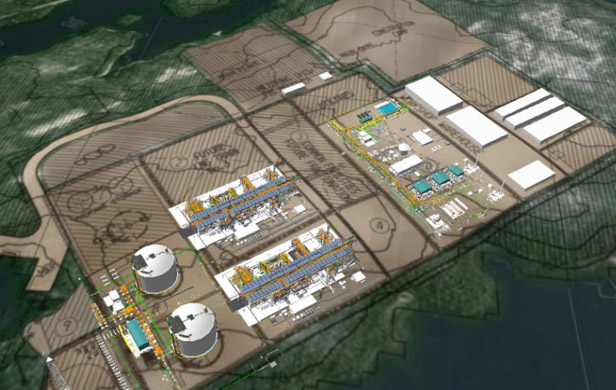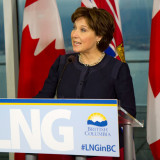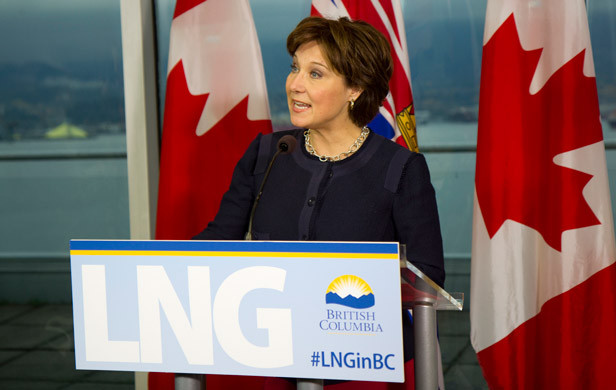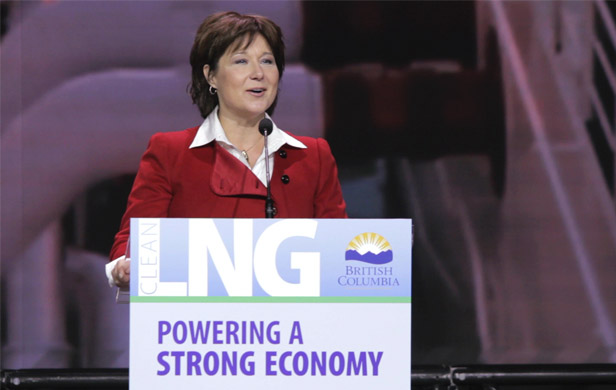
I really need your help.
What the devil does one call premier Christy Clark, considering that she seems utterly incapable of telling the truth? Hers is an interesting case because her gross economy with the truth seems designed to get her away from whatever her current difficulty is, onto something different. Whether this amounts to “lying” in the accepted sense of that term, I don’t know.
“Disassembling”? “Fibbing”?
[quote]I would love to see prosperity come to my province…Unfortunately, it is just a dream.[/quote]
All BC’s eggs in LNG basket
Never mind the fact that she has no policy whatsoever with respect to pipelines and tankers – simply lofty sounding words with no meaning whatsoever. Let’s leave that aside for today and move onto something more critical, I think, because she has staked so much of her political life on it. Indeed, she has staked the wellbeing of our province on it.
I refer for you to page B7 of the Vancouver Sun for July 23 and an op-ed by Mark Jaccard, an acknowledged energy expert and Nobel laureate.
When Dr. Jaccard told his guests at an energy conference, during the 2013 provincial election, about the promises premier Clark was making with respect to LNG development in British Columbia, they broke into laughter.
God knows I am no expert on these matters but you will recall that I was laughing at her too.
It turns out that Dr. Jaccard’s audience and I were laughing at the same thing and it had nothing to do with energy science.
BC LNG business case bankrupt
My research was very simple. I read trade journals and as much editorial comment as I could find on the Internet. One thing became very clear and it did not take a brain surgeon to understand it.
For a company to invest billions of dollars In LNG plants, pipelines and tankers, a couple of basic things had to be in place.
First of all, there had to be a supply of product – that one wasn’t a problem, there was an over supply.
Secondly, there had to be the certainty of a market. That there were lots of potential “markets” around was true – the real question was whether or not these markets needed BC, considering their other alternatives. In short, there had to be firm contracts in place from which the markets could not escape. We are no closer to that today than we were during the election.
[signoff3]
The third and critical point was the price to be paid for the product. No entrepreneur is going to sink a lot of money into a project unless he knows that he is going to make a profit. That is the nature of capitalism. What seems clear to me – and also true to Dr. Jaccard’s audience – is that there is no potential market BC could depend upon at any price, let alone a certain price.
In determining future BC prosperity from natural gas, one was flying in the dark. I won’t go into the details but please read the article and you’ll see how complicated it is to predict the price of natural gas under the best of circumstances, which these are not.
The China Syndrome
One of the obvious customers for BC is China. I recall saying then that China had a great many options, not the least of which was the largest supply of gas in the world in Russia, along with a huge supply of shale gas within China itself.
One could go on analyzing markets and that’s not my bailiwick – suffice it to say that the questions raised at that time by Dr. Jaccard, his audience and by me, are no closer to being answered now that they were then.
Clark government in denial
None of this has daunted the Clark government in the slightest. They carry on as if LNG plants are going to spring up all over British Columbia and we will be awash in profits.
At this point, one might usefully go back to the election itself. Such was the enthusiasm for Ms. Clark to get elected one might say her statements about LNG were somewhat extravagant. You may recall that at the very beginning, we were told that BC, by 2017, would have all its debts paid and $100 billion in a Prosperity Fund!
Somewhere along the way, after the election was safely behind her, someone must have whispered into Premier Clark’s ear just how much money $100 billion was. It also became evident to the premier that 2017 was rather an optimistic date and that since she didn’t have to worry about an election for another four years, perhaps that might be scaled and the whole question of provincial debt best mumbled away and forgotten.
The point of this exercise is that either British Columbia is going to have a substantial LNG industry or it is not.
The next question of course is that if we are, then when?
The honest approach to this question would be, we simply do not know. A premier and a government being square with the voters would simply say that. They would point out that since “fracking” became all the rage, all bets are off as to the supply of natural gas and, indeed, oil in the world. All assumptions and estimates are now highly questionable.
The changing global energy landscape
There seems to be no question that there is a need for this new supply – but just who needs what and from whom is a huge question, which is nowhere near being settled. Old trading patterns are changing and none of the old truths can any longer be relied upon.
Moreover, there are serious political problems which will enter into the picture. For example, what does the change in world petroleum supply mean to the Middle East and the political relationships of countries with that region? Now that the United States is approaching self-sufficiency, what impact will that have in the geopolitical sense? One might think that this is irrelevant to the other questions I have raised, but not so. The natural rules of the marketplace are always trumped by considerations of world politics.
These are the facts that the public of British Columbia ought to know and understand; these are the facts that responsible, honest political leaders bring to the attention of voters.
To have taken the very best possibilities arising out of this new petroleum situation in the world and paint them as if the inevitable answer was fabulous prosperity for BC is as irresponsible a piece of political chicanery as I, in a long life, have ever seen. Moreover, the child-like deception continues, day after day.
Like every other British Columbian, I would love to see prosperity come to my province. To be able to all live better and to have our social ills dealt with in a more thorough and humane manner is a lovely dream to have. Unfortunately, it is just a dream.
Where does NDP opposition stand?
As of this writing, the NDP leader, John Horgan, has re-shuffled his shadow cabinet with energy split amongst several critics. Since the last election, the NDP have been a great disappointment in their effort to be the loyal opposition. They have not held the government’s feet to the fire – rather, they have been busy infighting and sorting out their internal disorder. Let’s hope that this has now changed.
It is by no means too late. I don’t give a damn whether or not the NDP is socialist or what it might be in its official political philosophy. Those sorts of terms are long out of date and useful only as political rhetoric during an election. Most political parties now are in the center of the road and appealing to people in all walks of life. I do not fear that the NDP would suddenly be nationalizing our businesses or bringing in secret police to enforce their version of humane practices.
What the NDP must present to the people of British Columbia is an honest appraisal of what the issues are and where we stand.
The current Christy Clark government is incapable of telling the truth, if to do so would in any way impair their popularity. One does not expect them to be paragons of political integrity – God knows they’re a long way from that. But on such an important matter as our natural gas industry, the truth is essential if the public is to understand our fiscal future.
The Christy Clark government’s position on LNG is, as Dr. Jaccard and his audience indicated, funny as hell.
Unfortunately, it is also tragic.
 LNG (Liquified Natural Gas) is one of biggest energy stories to hit Western Canada. It is promoted as a clean bridge fuel that will create thousands of jobs and turn British Columbia into a trillion-dollar global energy leader. The idea is to cool natural gas into liquid, so it can be shipped to higher-price markets in Asia. But is it really all it’s cracked up to be? And what are the trade-offs and impacts associated with LNG and the fracked gas that would feed it?
LNG (Liquified Natural Gas) is one of biggest energy stories to hit Western Canada. It is promoted as a clean bridge fuel that will create thousands of jobs and turn British Columbia into a trillion-dollar global energy leader. The idea is to cool natural gas into liquid, so it can be shipped to higher-price markets in Asia. But is it really all it’s cracked up to be? And what are the trade-offs and impacts associated with LNG and the fracked gas that would feed it?